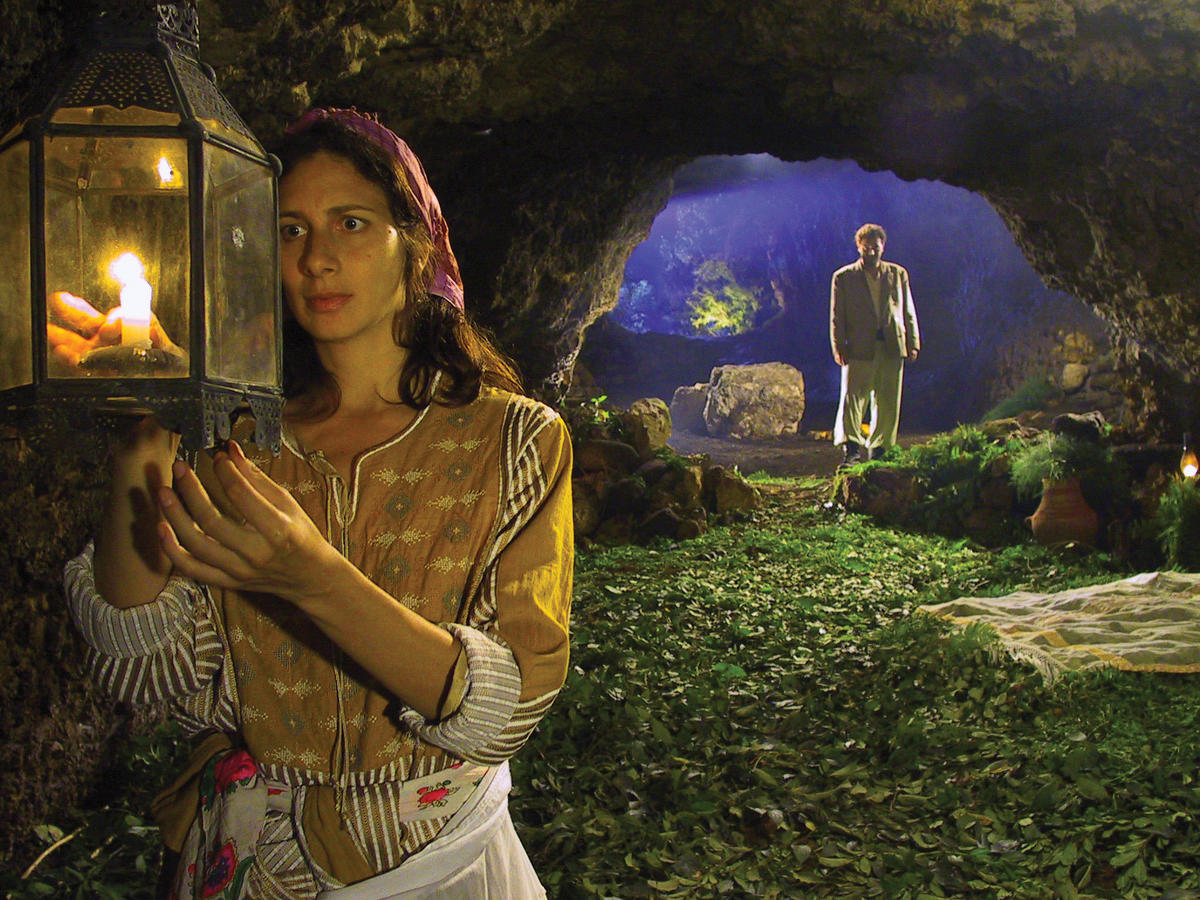
“We didn’t know Palestine until we lost it.” So says one of the characters in Yousry Nasrallah’s epic four-and-a-half hour adaptation of Elias Khoury’s novel Bab El Chams. Retracing the story of Palestinian resistance fighter Younes Ibrahim el-Assadi, from Galillee in 1943 through to the days of the Oslo Peace Accords, the film marks a formidable achievement in attempting to put on screen a definitive version of the ‘Palestinian story.’
Split into two parts, ‘The Departure’ and ‘The Return,’ Nasrallah cuts back and forth in time between scenes of Younes as a young man, first fighting the British in the hills of what was still Palestine, to the film’s ‘present’ as a middle-aged Younes lies comatose in bed in a refugee camp in Beirut, having suffered a stroke, and being tended to by Dr Khalil. It is the character of Khalil, himself in hiding from the PLO under suspicion of complicity in his lover’s shooting of another Palestinian man, who narrates Younes’s story. Revolutionaries, by definition, live in a world of myths and legends, and this comes out most strongly with Khalil’s wide-eyed remembrance of Younes’s feats as a young man. Bab El Chams is at its strongest in this first half, as we witness the Nakba of 1948. What comes out most of all is the pastoral nature of pre-Partition Palestinian life, a nation of farmers and peasants hopelessly unprepared for the battles that lay ahead.
The film graphically shows the Palestinians forcibly driven from their villages by the Jewish forces of the Palmah, their loudspeakers menacingly threatening: “We’ll kill your men. We’ll rape your women. This zone is now forbidden to Arabs.” Often attacking at night, their faces obscured by ghostly flashlights, the Jewish forces are portrayed as an unstoppable force of nature, bringing with them fire, destruction and violence. Nasrallah deliberately dehumanizes them. One scene shows a Palestinian man remonstrating with a Jewish soldier that they have an obligation to treat the civilians with respect and dignity. “Let’s reach an understanding now,” the old man pleads. The unseen soldier, back to camera and only pistol in view, responds by shooting the man in the head.
Nasrallah has, inevitably, faced accusations that his film’s depiction of the Jewish forces is anti-Semitic. In discussion with Bidoun, he dismissed this, claiming: “It’s understandable that some people are upset by some of the sections. But my answer to them would be that I didn’t want to make a film where it’s as if the Israelis are the Nazis and the Palestinians are the Jews. We can’t have peace unless there is acceptance and acknowledgment of what really happened.” Indeed, the filmmaker was keen to stress the critical representation of Arab regimes in the film’s second half: “If anything I want to liberate us from these Arab regimes who have expropriated the Palestinian cause as an excuse to oppress their own people.”
Indeed it would be unfair to say that it is only the Jewish forces who are portrayed as villains. Nasrallah makes a point of criticizing Arab regimes for having abandoned the Palestinian people. In one of the film’s most memorable moments, Lieutenant Mahdy of the Arab Rescue Army is begged by the Palestinian villagers to give them arms and support. “We have no orders,” he tells the beleaguered peasants. “Our leaders have sold us out.”
The clear shift in tone between the two parts is most evidently symbolized by Khalil’s assertion to the passive Younes: “Yours was a time of heroism. My times desperately lack it.” Nasrallah revels in portraying the heady initial days of 1948. In one stirring moment, the Palestinians, backed by Lieutenant Mahdy’s cannons, force back the retreating Jewish forces. Nahila, Younes’s wife, leads the charge, flag raised defiantly in one hand, baby held close to her breast in the other, a latter-day Marianne delivering her people. It is only a momentary triumph, though, a brief glimpse of what might have been, as the film soon shows us the desperate nature of the Palestinian predicament, hopelessly split between those who live a life of exile in the refugee camps of Lebanon and those that have chosen to remain.
Perhaps inevitably given its running time there are moments when the film lapses into didacticism, particularly in the second half. One exchange in particular falls flat between Khalil and the unlikely figure of Béatrice Dalle as a French actress researching a play on the Sabra and Chatila massacres. The film was originally commissioned by French TV channel ARTE, and episodes such as this betray its non-theatrical roots. Elsewhere, however, the viewer is left with an abiding sense of a nation lost and a people often defeated but never vanquished. “A young man will know many a refuge throughout his life,” Younes’s father tells Nahila as they are expelled from their village, “but only his first home will he miss.”
Bab El Chams (La Porte du Soleil), 2004. Dir. Yousry Nasrallah, Egypt/France, Arabic, 142 and 137 min.